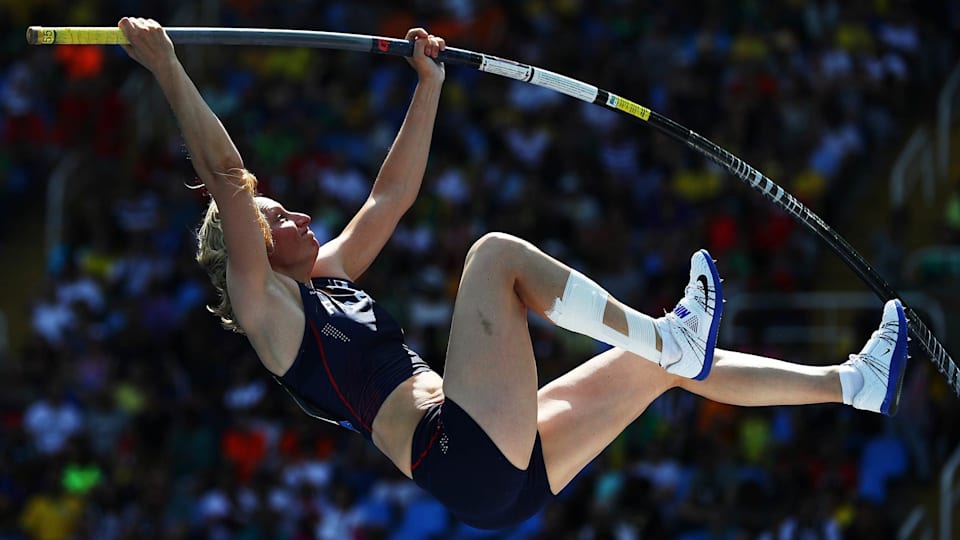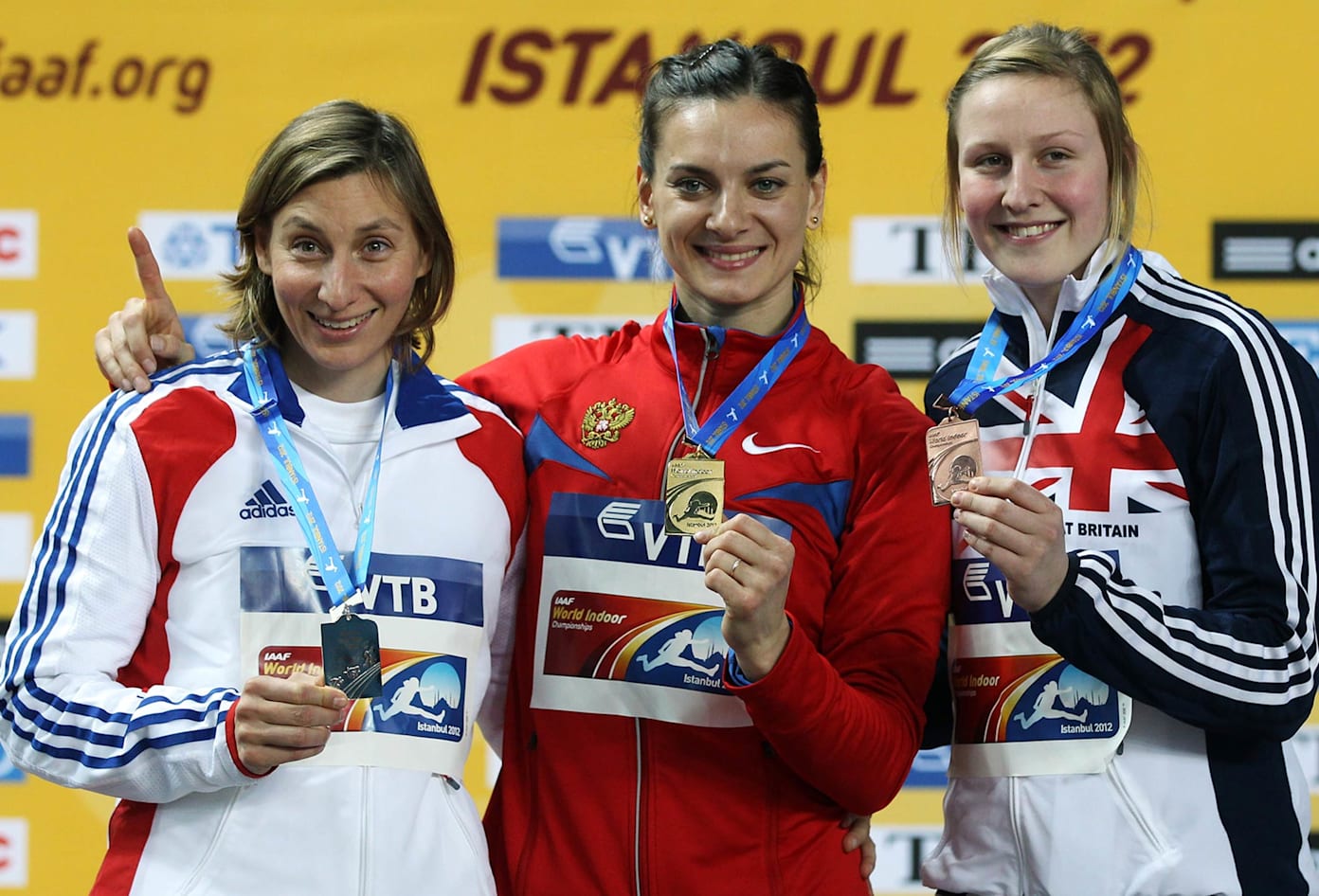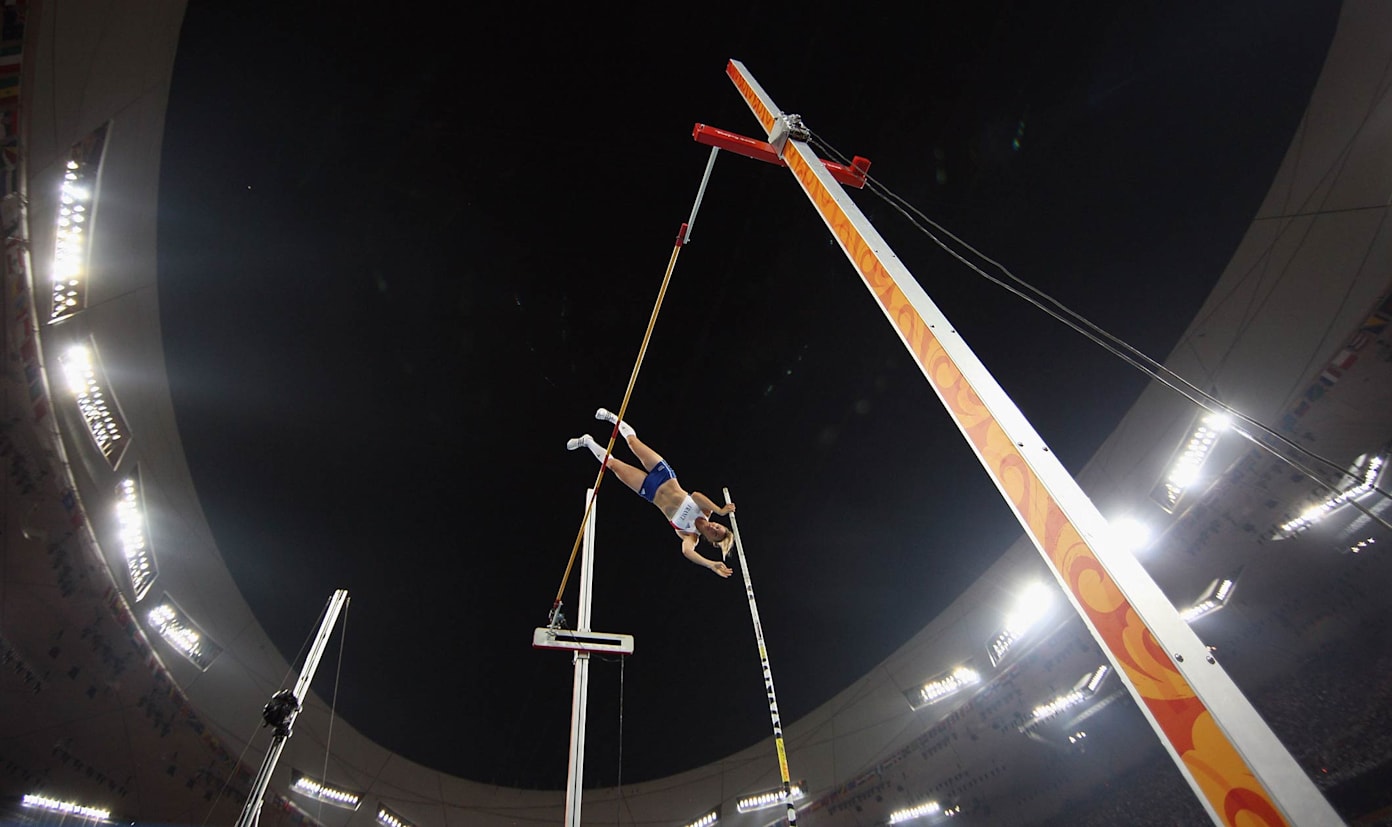Vanessa Boslak: "Sport helped me to handle the COVID-19 crisis"
After participating in four Olympic Games, the French vaulter retired in 2017 to begin a career in physiotherapy. She is now working in a Parisian clinic helping COVID-19 patients with muscle recovery. During this highly stressful period, Boslak says that it was her athletic experience that helped her to handle a crisis like this.

Hospital environment is something that Vanessa Boslak knows well. Before retiring in 2017 after the Rio Olympic Games, the former French pole vaulter faced many injuries including some that required surgeries.
Before London 2012, she had to stop for three years and had to undergo four knee surgeries.
"I never had easy conditions in my sport career," tells Boslak to Tokyo 2020.
"Except from Athens 2004, when I was 22, I always had to struggle against an injury. In Beijing and London, it was the knee and in Rio, it was the feet."
"I had to handle the pressure of full-packed stadiums and high competition and with an injury on top of it. That's why I know how to handle difficult situations and I think that helps me manage the crisis that I’m in now."
Today, she faces a new challenge.
From the Olympics to the hospital
Boslak was one of the best pole vaulters in France. From 2002 until 2012, she has held many national records and also competed in four successive Olympic Games, from Athens 2004 to Rio 2016.
She has also managed to reach three Olympic finals with her best performance coming in Athens where she finished sixth.
In 2012, she claimed silver in the Athletics World Indoor Championships finishing just behind the pole vault legend Yelena Isinbayeva with a 4.70m jump.
After a motorbike accident in 2017, where the brake pedal sank between her Achilles tendon and her malleolus which led to six weeks of cast, she decided to retire.
Because of her degree in physiotherapy - studies that she started back in 2001 and finished in 2007 - Boslak subsequently began her medical practice. However, she only did a few months of residency in a medical office because she "couldn’t bear to stay in a 6sqm room" as she has always been used to spending her days in a stadium.
"I called my friend Victor Sintès, a former fencer that competed in London 2012 and Rio 2016, who now works in the clinic, and he told me that his teammate was leaving and he was looking for someone."

Helping COVID-19 patients
Since 2018, she has been working in a Parisian clinic, which specialises in cardiothoracic surgery.
This small establishment was not meant to treat COVID-19 patients but due to the extent of the outbreak in France, they had to transform and adapt their facilities. From 10 reanimation beds, they manage to set around 20 to treat COVID-19 patients.
As s a physiotherapist, Boslak ensures that her patients maintain a range of movement during reanimation.
"We move the patients to keep their articulation flexibility. If we let someone motionless for a couple of weeks, his or her articulations get stiffer and stiffer," she said.
Patients also need re-education when they wake up.
"When they wake up, they suffer from muscle weakness, called critical illness polyneuropathy. We help them to rediscover their muscular functions."
Sometimes, COVID-19 patients are so tired and weak that they can’t cough properly to get rid of mucus. Boslak helps them with that as well.
"Some patients are not suffering from respiratory failure but from extreme fatigue and we have to help them to get the secretions out thru some thoracic therapy."
I know how to keep calm in those moments.I do my job and I’m not that stressed.
Dealing with stress
During this period, Vanessa Boslak had to face extreme situations with high stress and pressure. But her elite athlete career helped her to handle those difficult moments with calm and perspective.
"The current situation is nothing compared with sport, of course, but how we handle this is something sport can help with," said Boslak.
"I think I can manage the crisis with better tools. In elite sport, we are used to living in constant stress, on a daily basis and during big events.
"Today, we are always on a rush. Everything goes fast and I can feel that sports helped me. I have more perspective. I know how to keep calm in those moments. I do my job and I’m not that stressed."

Living in the present moment to handle difficult situations
Another quality that she learnt from her career is to connect with the present moment. Pole vaulting competitions can last for two to three hours and it’s easy to mentally get out of the situation especially thinking of the next step.
"When you are about to run for a jump, you already think of the following jump. But you have to think of the present moment. Reconnect yourself to where you are at now."
"When your mindset starts to wander, it’s not good. When stressed, we sometimes struggle to channel everything and to stay focused in the present moment."
Today, she uses this mental skill in tough situations, especially when taking care of patients who are in bad conditions. Thinking negatively can be counterproductive.
"Sometimes, we get into a room and we know that the condition of the patient is getting worse and worse. I don’t think of nothing but the care I have to give. I focus on it, I’m doing my best and my mind doesn’t go elsewhere."

